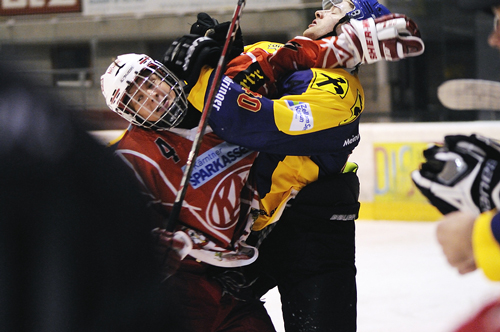Sucker punch. The term means you hit someone when they’re not looking. It happened to me; I never saw it coming. A tap on the shoulder, I turned, and the next thing I knew, I was on the floor. Hitting someone when they aren’t ready to fight doesn’t seem fair to most people. There is a sense that if you’re going to start a fight you ought to be looking the other person in the eye. The sucker punch takes many forms. Terrorists will fire on American forces while hiding behind women and children. Terrorists—a poor term since female skirts provide their cover—know U.S. soldiers will not return fire on defenseless civilians. The sucker punch is well known in business. Workers are “let go”, escorted from their work station without being allowed to retrieve any personal articles so supervisors can limit public opinion damage.
Until recently, journalism and education were thought to be arenas of safety from the sucker punch. Journalists were supposedly protected by free speech clauses in The First Amendment to The Constitution. Higher education and so-called “academic freedom” should have gone hand-in-hand. Free to inject ideas into conversations to give alternative perspectives, scholars, writers, and columnists make comments knowing others will not agree. This week we discovered that free speech and academic freedom mean nothing. Naomi Schaefer Riley was sucker punched in the pages of The Chronicle of Higher Education. Naomi Schaefer Riley, author of books on college education and published journalist in multiple papers and magazines around the country, was being paid by The Chronicle of Higher Education to inject ideas in its website blog. Last week Riley was critical of contemporary black study courses and programs. She had the audacity to suggest, in her words, the dissertation topics of the graduate students mentioned were obscure at best and “a collection of left-wing victimization claptrap,” at worst. Whether one agrees with Riley or not, she was exercising her free speech and academic freedom. A firestorm of protest resulted in ad hominem [against the person] attacks and bile-filled language. Did Riley utter so-called ‘hate speech’? No. She called no one names. Did Riley slander any person? No. Did Riley question something others had not already criticized in the past? No. She referenced a course of black, graduate level studies ‘claptrap’; that’s all. My African-American colleague with whom I teach, Professor Hosea Baxter said of The Chronicle, [Quote] “If black academia is sheltered from critique, then black academia can also be viewed as anemic, needing special protection.” [End Quote]
And what was the response from The Chronicle of Higher Education? Did the mouthpiece for undergraduate and graduate education stand by free speech? Did the most public forum for university ideas support academic freedom? Did the news source which touts its support of broadmindedness in the academe, stand by their paid contributor to the blog page entitled “Brainstorm: Ideas and Culture”? The answer to each question is “No.” The Chronicle of Higher Education capitulated; it caved to the pressure of wrongly-called tolerant, free-thinking, multicultural, open-minded academics who slurred Riley’s good name and reputation. The Chronicle of Higher Education did not stand for tolerance, free-thinking, multicultural, open-mindedness which the professorate claim for themselves who protested Riley’s words. Riley was sucker punched. Her words were an academic criticism for which she was summarily dismissed. The Chronicle of Higher Education hid behind the skirts of what they called “editorial standards of reporting.” The sucker-punch has taken on a new form in academic journalism; so much for free speech and academic freedom. Naomi Schaefer Riley’s story is a chronicle of lower education.
Mark believes that justice is intricately linked with freedom; that if one is lost, the other is sure to follow. Mark protects the academic freedom of his professorate–black and white–at Crossroads Bible College, Indianapolis, IN. Dr. Mark Eckel is both an academic dean and a teaching professor.

